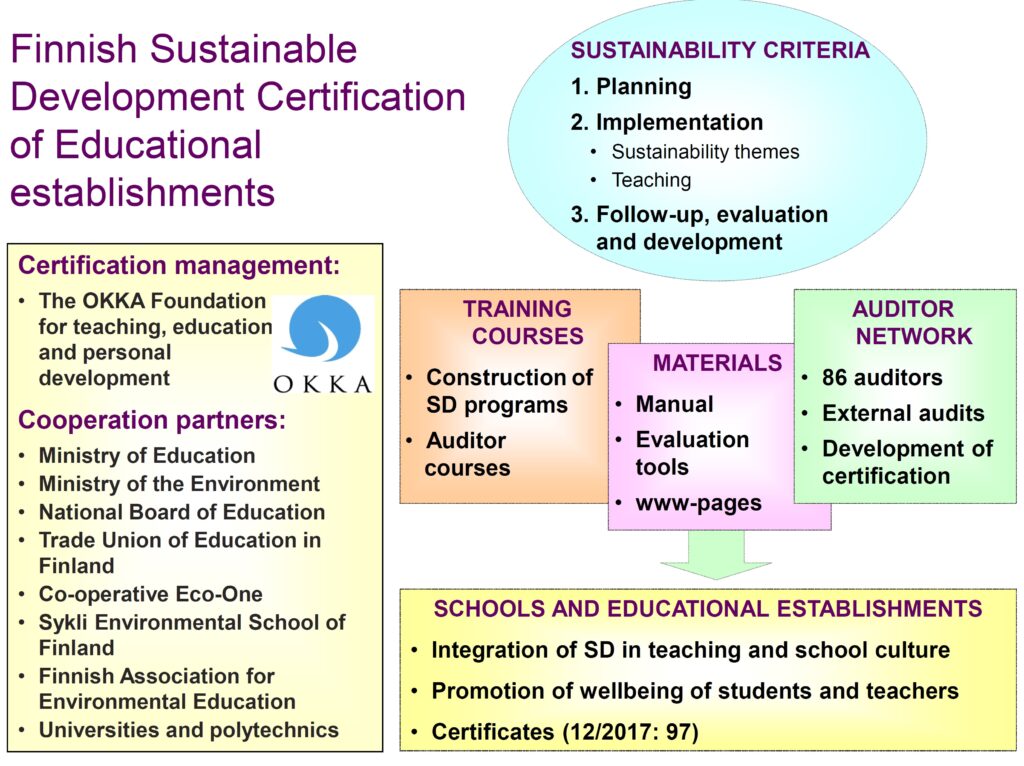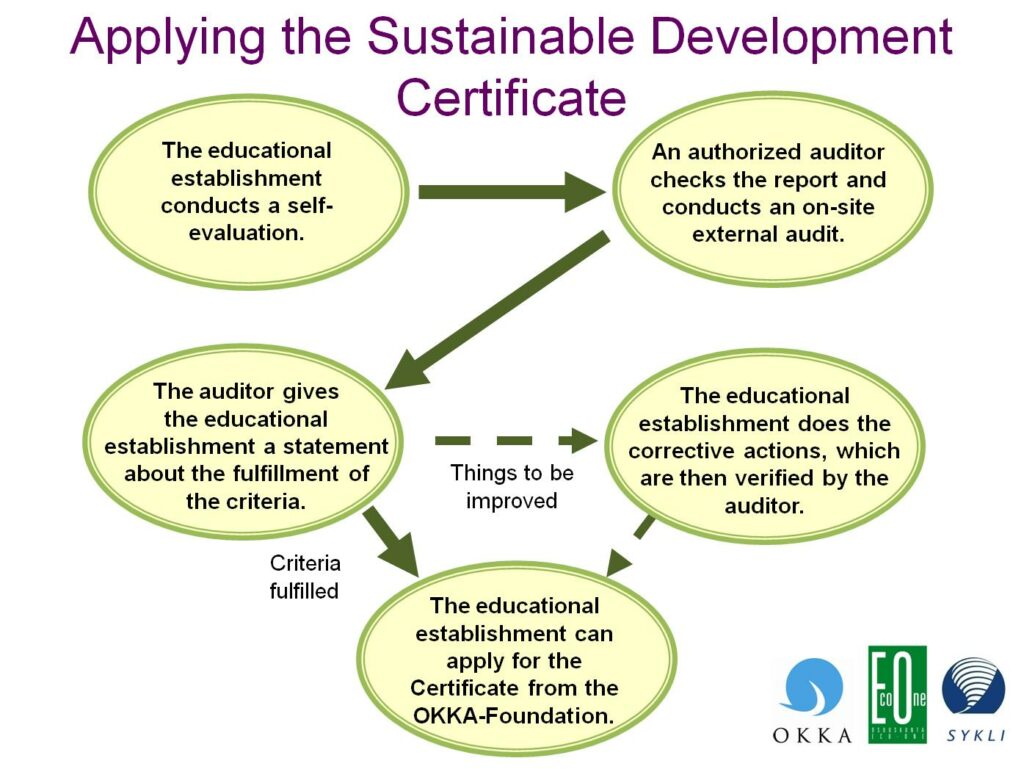Certification system
Aims
The aims of the certification system are:
- development of the quality of teaching, learning environment and operation of educational establishments,
- implementation of education for sustainable development in teaching and school culture with a comprehensive approach.
The desired impacts on the school level are:
- Increased students’ awareness and commitment to sustainable development
- Sustainability-skilled students entering the working life
- Improved safety, wellbeing and cooperation of the staffs and students
- Cost savings in the operation of schools (waste, water, energy, etc.)
- Increased interaction between the society and cooperation with external stakeholders in promoting sustainable development
- School’s responsible profile (certification)
Elements of the system
The OKKA Foundation is responsible for maintaining and developing of the certification system which contains
- criteria for integrating sustainability issues in the management, teaching and maintenance activities of educational establishments,
- wide supporting material for the sustainable development work of educational institutions available on the certification website,
- nation-wide auditor network which implements evaluation and development of the operation of schools and educational establishments,
- teacher training courses supporting the construction of sustainable development programs, qualification and supplementary courses for auditors,
- possibility for external evaluation and certification.
The OKKA Foundation has a wide cooperation network to promote certification and sustainable development work in schools and educational establishments. Implementation and development of the certification system is done with support from the Ministry of Education. OKKA operates in projects and provides teacher training on sustainable development issues together with several partners. Close cooperation is also done with the Eco-Schools programme which is managed by the Finnish Association for Environmental Education. Sustainable Development Certification is not designed as a rival but a complementary system for the Eco-Schools programme.
 Figure: The sustainable development certification system.
Figure: The sustainable development certification system.
Sustainable development criteria
The sustainable development criteria and related self-evaluation tools are based on the principle of quality circle (plan, do, check, act), and are applicable with quality systems. They provide a systematic tool for the planning of teaching and constructing sustainable development programs.
The criteria include sustainability themes such as responsible procurements, recycling and prevention of waste, energy and water, nutrition and health, safety, wellbeing of staff and students, cultural environment and cultural diversity. The idea is that the school selects annually one or more themes which are implemented in teaching and school culture.
Read more about the theoretical approach of the criteria.
Download the Sustainable Development Criteria for Educational Establishments
Applying the certificate
Before a school can apply for the Sustainable Development Certificate, it has to carry out a self-assessment. Furthermore, an independent, external auditor carries out an audit in the school. The school applies for the Environmental Certificate from the OKKA Foundation. The certificate is free of charge, but the school compensates the auditor for the costs due to the planning and implementation of the external audit. The certificate is valid for a three-year period at a time. By the end of 2017, the environmental/sustainable development certificate has been awarded to 97 educational establishments.
 Figure: The process of applying the certificate.
Figure: The process of applying the certificate.
